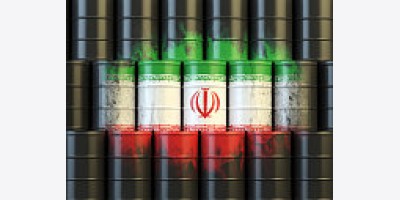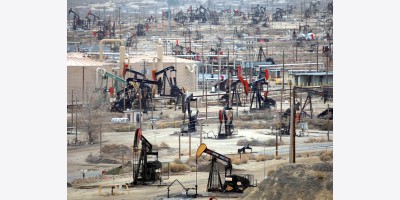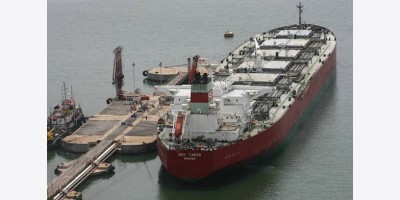As the price of oil continues its decline, economists have warned on a lack of upward price pressures for the commodity for at least another two years.

David McNew | Getty Images News | Getty Images
Thomas Pugh economist at Capital Economics predicts oil could hit $55 per barrel for Brent crude at the end of 2015, with oil to remain in surplus for another couple of years.
"The market is still going to be in surplus by this time next year, so by the time you actually have supply and demand starting to equate, it will be well into 2017," he told CNBC via telephone.
The oil industry is full of booms and busts. The norm for oil for the last decade has been $90 - $100 per barrel, but Brent is currently trading closer to $45 a barrel.
The U.K. oil giant BP announced on Tuesday it was slashing costs as it prepares for a long term low oil price environment. The company is planning for oil to be around $60 per barrel until 2017.
Jason Gammel, equities analyst at Jefferies, believes that $60 will not even be sufficient to balance the market and highlights pressure coming from Iranian barrels coming back onto the market.
As international sanctions on Iran are lifted, an increase in oil exports is expected from the country, adding to global supply and pressuring prices.
However, Pugh also highlights an obvious concern over Iranian supplies. He explained that the "market is expecting all this Iranian oil to come back", adding that there is a risk that Iran does not comply with its side of the bargain when it comes to exports.
The Organization of Petroleum Exporting Countries or OPEC, which is largely made up of producers based in the Middle East, is the main group responsible for coordinating production levels in order to influence prices. OPEC's next meeting will be held in Vienna on December 4, 2015.
Frances Hudson, global thematic strategist at Standard Life Investments said: "The feeling is that oil prices have been unnaturally low, but in terms of supply and demand it seems reasonable as Saudi (Arabia), as a producer, has decided to produce just enough to keep markets at this level. "
"Saudi is the dominant player within OPEC and is estimated to cut production. When Saudi decides they are going to raise production that changes the output for OPEC." said Hudson.
Hudson warns there is also an outside chance of an oil price shock within the next few months. If this happens, this would see the oil price rise, he added.
- By CNBC's Tanzeel Akhtar, follow her on Twitter @Tanzeel_Akhtar























